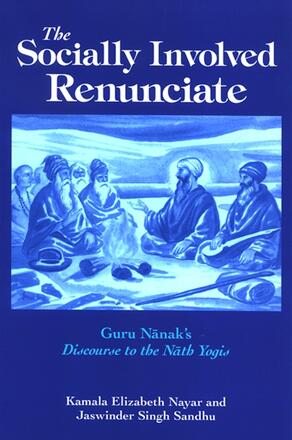
The Socially Involved Renunciate
Guru Nānak's Discourse to the Nāth Yogis
Alternative formats available from:
A translation and analysis of Guru Nanak’s description of the Sikh path to spiritual liberation.
Description
The Socially Involved Renunciate is an in-depth analysis and an original English translation of the Siddh Goṣṭ, a fundamental philosophical text of the Sikh tradition. The work reflects the distinctive worldview of Sikhism, the only major Indian religion that does not regard asceticism as a legitimate path to liberation.
Composed by Guru Nānak, a medieval, north Indian saint-poet and venerated founder of the Sikh tradition, the Siddh Goṣṭ is a dialogue between Guru Nānak and several Nāth yogis who had been pursuing a rigorous path of hath-yoga as renunciates of the material world. Through their dialogue, Guru Nānak teaches the Nāth yogis a spiritual path that also includes involvement in the social world and offers a practical way to achieve liberation. In The Socially Involved Renunciate, Kamala Elizabeth Nayar and Jaswinder Singh Sandhu provide background on Sikhism, highlight the ethical teachings expounded in the Siddh Goṣṭ, and demonstrate how Guru Nānak reconciles the polarities of the ascetic and householder ideals.
Kamala Elizabeth Nayar is Lecturer in South Asian Studies at Kwantlen Polytechnic University, British Columbia, and author of The Sikh Diaspora in Vancouver: Three Generations Amid Tradition, Modernity, and Multiculturalism. Jaswinder Singh Sandhu is a psychotherapist in British Columbia.
Reviews
"…the authors do an admirable job of contextualizing Guru Nanak both historically and religiously … The Socially Involved Renunciate is a welcome contribution to the small body of works on Guru Nanak. The sections on renunciation and the translation of the Siddh Gost in particular lend themselves to a comparative approach, and it is easy to envision this text being incorporated into a class on Indian religions." — International Journal of Hindu Studies
"The authors venture to examine an interesting and hitherto unexplored area of Sikh study in the English language and deserve critical encouragement for writing an important work in this newly emerging field." — Pashaura Singh, University of California at Riverside